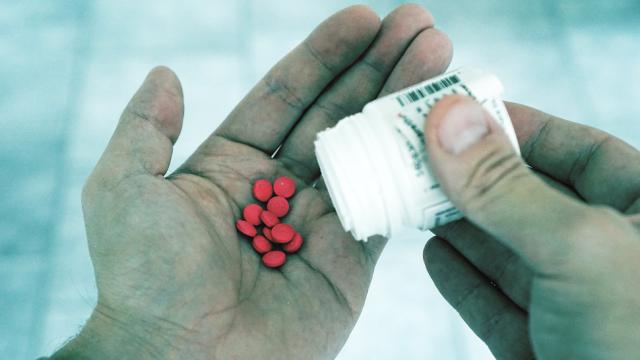Deception is necessary for placebo pills to work, or at least that’s the conventional wisdom. A surprising new study on patients with chronic back pain shows that we still experience the placebo effect, even when we know we’re being tricked.
Image: Pixabay
This study reminds me of a Simspons gag. There’s an outbreak of the Osaka Flu in Springfield. A mob beseeches Dr Hibbert, “We need a cure!” He says, “Ho ho ho, why the only cure is bed rest. Anything I give you would be a placebo.” Someone immediately pleads, “Where can we get these placebos?!”
It’s funny, of course, because that’s not how placebos work. Placebos aren’t cures. The placebo effect is a neat trick in which our conscious expectations of what a pill or therapy is supposed to accomplish actually elicits physical effects, which are usually quite subtle and transient. Or, at least that’s what we thought. A new study published in the science journal Pain upsets this conventional thinking, showing that the placebo effect can still happen even when we’re aware of the intended deception.
An experiment conducted by researchers from Beth Israel Deaconess Medical Center and the Instituto Superior de Psicologia Aplicada (ISPA) in Lisbon, Portugal, is the first to demonstrate that patients who knowingly took a placebo alongside a traditional treatment for lower back pain experienced greater improvement than patients who just received the traditional treatments.
“Our findings demonstrate the placebo effect can be elicited without deception,” noted lead author Claudia Carvalho in a release. “Patients were interested in what would happen and enjoyed this novel approach to their pain. They felt empowered.” The researchers say the placebo effect doesn’t necessarily happen on account of a patient’s conscious expectations, but rather because they’re taking the pills within the context of a patient-clinician relationship.
“It’s the benefit of being immersed in treatment: Interacting with a physician or nurse, taking pills, all the rituals and symbols of our healthcare system,” said study co-author Ted Kaptchuk. “The body responds to that.” He suspects that this ritual alters a patient’s symptoms, and likely activates regions of the brain that modulate symptoms.
For the experiment, the researchers studied nearly 100 patients with chronic back pain. After all participants were given a 15-minute primer of the placebo effect, the researchers randomly divided them into two groups: A group that only received traditional pain relief, and a group that received normal pain relief alongside a placebo that was openly identified as such (the bottle was literally labelled “placebo pills”).
At the end of this three-week regimen, the placebo group reported 30 per cent reductions in both usual and maximum pain, compared to nine per cent and 16 per cent reductions (respectively) for the non-placebo group. The placebo group also experienced a 29 per cent reduction in pain-related disability. The non-placebo group experienced virtually no improvement in this area.
“These findings turn our understanding of the placebo effect on its head,” noted Kaptchuk.
It’s a fascinating finding, but with some important caveats. The sample size was relatively small, and the duration of the experiment was too short to get a sense of any long-term effects. It’s also not clear how individuals with other health conditions would respond to the open placebo treatments. To that end, and in the words of the researchers, “More research on this possibility is warranted.”
[Pain]
